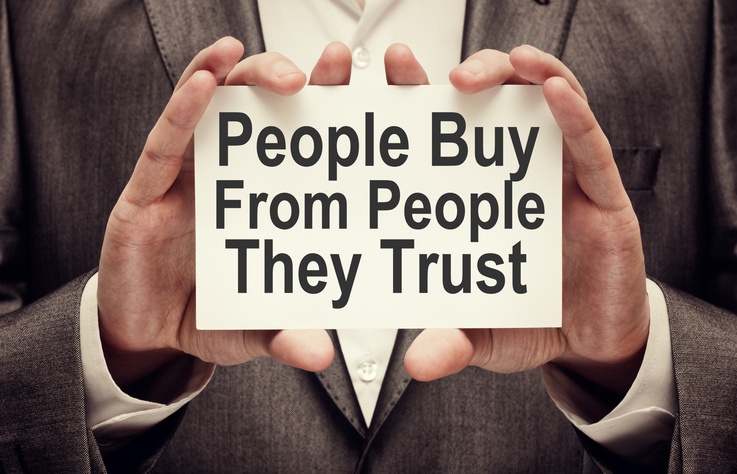Being in business means spending money to overcome challenges. However, the cost of doing business is skyrocketing for companies across the country. It is estimated that cyber crime drains 11.7 million per business annually, and has increased 62 percent in the past five years. Another study, commissioned by the Small Business Administration, found that it costs businesses an estimated $1.75 trillion per year to comply with federal regulations.
These statistics demonstrate that most businesses are struggling with recurring problems that are eating into their bottom lines. However, the key to solving these issues is rethinking the processes that result in major cash drains for your business. Now companies have a potential solution: blockchain.
Blockchain technology is emerging as a business tool for many companies in various industries to solve problems related to data and transactions. A 2017 IBM study found that a third of C-level executives are already using it or are considering adopting blockchain technology for their companies. In fact, by 2024, the global blockchain market is expected to be worth $20 billion.
A number of major companies are currently active players in the blockchain industry, including Microsoft, IBM, the Linux Foundation, UBS, and Bank of America. The potential for blockchain is enormous, but as with any new business tool, it is important that you fully understand which business problems blockchain can effectively solve.
To help you understand how you can put this technology to use in your business, here are 4 ways to use blockchain to rid your business of recurring problems.
Why Blockchain Technology Is Good for Business
Blockchain is a decentralized database that is used to keep records of transactions. All of the available data on a blockchain is public and encrypted, which means that no single entity has control of the information.
Transactions stored on the blockchain are extremely difficult to remove, duplicate, copy, manipulate or tamper with. With a ledger of transactions that is independently verifiable, there are many ways that this technology can help businesses to improve their operations.
1. Standardize Transaction Data
One major argument for blockchain in the management of transaction data is that it can deliver improved transaction standardization. Pain points for companies in the real estate, insurance, and other industries include a lack of transparency during and after transactions, exceptional amounts of paperwork, errors in public records, and fraud. By standardizing transactions with blockchain, companies can eliminate their reliance on paper-based record keeping while also speeding up transactions.
2. Automate Workflows
In order to make your business leaner and more efficient, you must rethink your workflows. Your business is likely to see higher growth and improvements to your bottom line from taking the steps to automating at least some of your workflows. Implementing blockchain will succeed in any workflow that involves digital transactions and document-based processes.
Blockchain technology and smart contracts eliminate the need for a middleman to verify transactions, perform background checks, and enforce contracts. Thanks to these features, blockchain technology can enhance your workflow automation. You can even extract information from smart contracts to use in other processes or bring in data from other processes into the smart contracts.
3. Improve Collaboration
If there are areas of your business where multiple parties need access to common data while needing to protect their commercial interests at the same time, blockchain can be a nice match for those processes. For example, a typical supply chain consists of a manufacturer, shipping services, warehouses, distributors, and retailers. Using blockchain ensures that no one party has complete control over the whole supply chain data.
Storing data and transactions on a blockchain also creates a verifiable audit trail. Whether you need more effective management of your data to meet compliance regulations or you simply want to improve accountability within your organization, blockchain is a useful tool for achieving these goals.
4. Eliminate Reliance on Transaction Intermediaries
A blockchain establishes a digital record that exists completely independent of a single institution. By doing so it establishes trust between the participants in a transaction without the reliance on a third-party intermediary. By eliminating need for these institutions companies can address many concerns from anti-money laundering to identity verification in a single solution.
Smart contracts can also be set up to execute only if predefined conditions are met. If the conditions of the smart contract are not met, then the company can be notified so that the contract can be stopped. This eliminates the potential for recipients of the smart contracts terms to tamper with the smart contract.
While these are just a few of the business challenges that blockchain can potential solve, it is important to understand that blockchain is a disruptor. Many new ways of doing business are expected to open up through blockchain. Companies no longer have to rely on special institutions for these services and can completely eliminate the risk of these institutions themselves becoming compromised.
Is Your Business Ready for Blockchain?
For the majority of companies, choosing the implement blockchain first requires some internal work. Otherwise, your blockchain project may fail or even overwhelm your operations. That is why it is important for you to work with experts who have a good understanding of this technology and experience in your industry.
Achievion can help you to evaluate blockchain technology in the context of your business needs. We will help you to create a plan that balances your short and long term business objectives while mitigating the risk that comes along with adopting a new technology. Contact us today to learn more about how blockchain can benefit your business.









